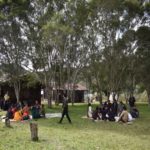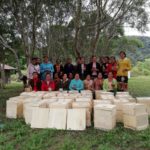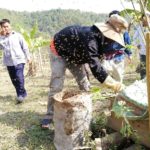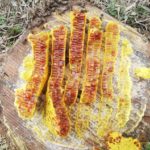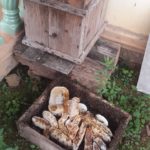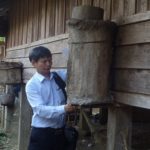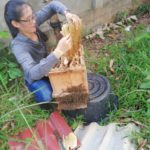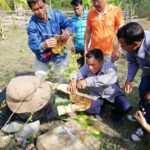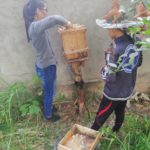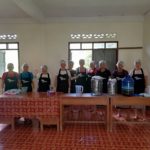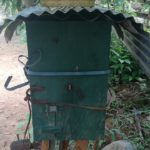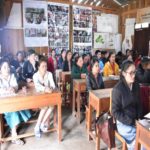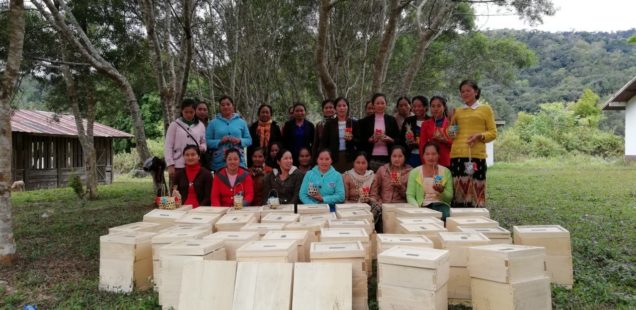
Cross-village solidarity and economic security through beekeeping and participatory quality control in Xiengkuang (Lao PDR)
The Sai Nam Pian, or Pian Stream, comprises ten communities which are well known for forest beekeeping in Xiengkuang, a northeastern province of Lao PDR. The Phosy community is one of such communities that gradually organized itself around the production of honey. A group of beekepers, mostly including women, is now very active producing and selling honey and honey byproducts, besides their normal activities of growing rice and raising animals. The organization and economic activities were set up with the support of the Green Community Development Association, a local NGO also mostly staffed by women. By setting a self-motivated, positive example, the Phosy honey producers’ group has become a source of tangible inspiration in the field of beekeeping of the native bee— Apis cerana.
Since 2018, beekeeping in the Sai Nam Pian has entered its expansion phase which include the branding of the Sai Nam Pian honey through participatory quality control. To engage with a market and form strong and long-term ties, rural and forest-based communities need to ensure that the quality of their product is maintained consistently. For this, beekeepers and honey gatherers need commitment and good overall coordination. The poor quality of one beekeeper would reduce the value of one entire batch of products and possibly taint the image of an entire beekeeping group. The beekeepers have been working together hand in hand to maintain a good level of quality for their overall production, but to ensure the buyers that quality control is adhered to, some form of certification is needed. Certification provides traceability and builds trust between buyers and sellers, besides helping to enhance the producers’ capacities and awareness of many marketing issues. Not all certification initiatives, however, are appropriate for farmers living in remote areas.
The Phosy honey producers’ group has agreed to use a PGS (Participatory Guarantee System) that builds upon the existing community cohesiveness, empowers it with new capacities and upholds the local indigenous knowledge versus external and foreign auditors. PGS is a low-cost certification system whose inspection is carried out by farmers themselves – through group dynamics and shared responsibility. It relies on “the development of a locally based system of quality assurance with strong emphasis on social control and knowledge building.” PGS is being widely adopted for agricultural and agro-forestry products in Asia. It is also incorporated in the IFOAM organic agriculture systems (see: https://www.ifoam.bio/en/organic-policy-guarantee/participatory-guarantee-systems-pgs ).
The bee keeping group and the entire Phosy community wish to continue to expand their networks and share their learnings with neighboring communities. They also wish to improve their work in terms of organization and commercial results. The overall goal is to increase their income but also to conserve the healthy conditions of their forest environment. In this PKF initiative co-financed with NTFP-EP, the Green Community Development Association will help the Phosy beekeeper group to assess and improve its operations and performance. This will involve some tailored training to strengthen the group’s capacity and use the PGS system as a model for community-based enterprises capable of ensuring both product quality and ecosystem conservation. Practical training will also be offered on setting up a group savings, which may be used to borrow funds for beekeeping production, buy honey during the relevant season, etc. The Phosy honey producer group and the Green Community Development Association will then collaborate to train two new groups in the villages of Perb and Phol, also willing to produce quality honey to be certified through PGS and willing to set up their own group saving schemes. Attention will be paid to discuss and understand technical and practical matters but also the meaning and benefits of inter and intra-community solidarity in processes of shared and mutually beneficial development.

